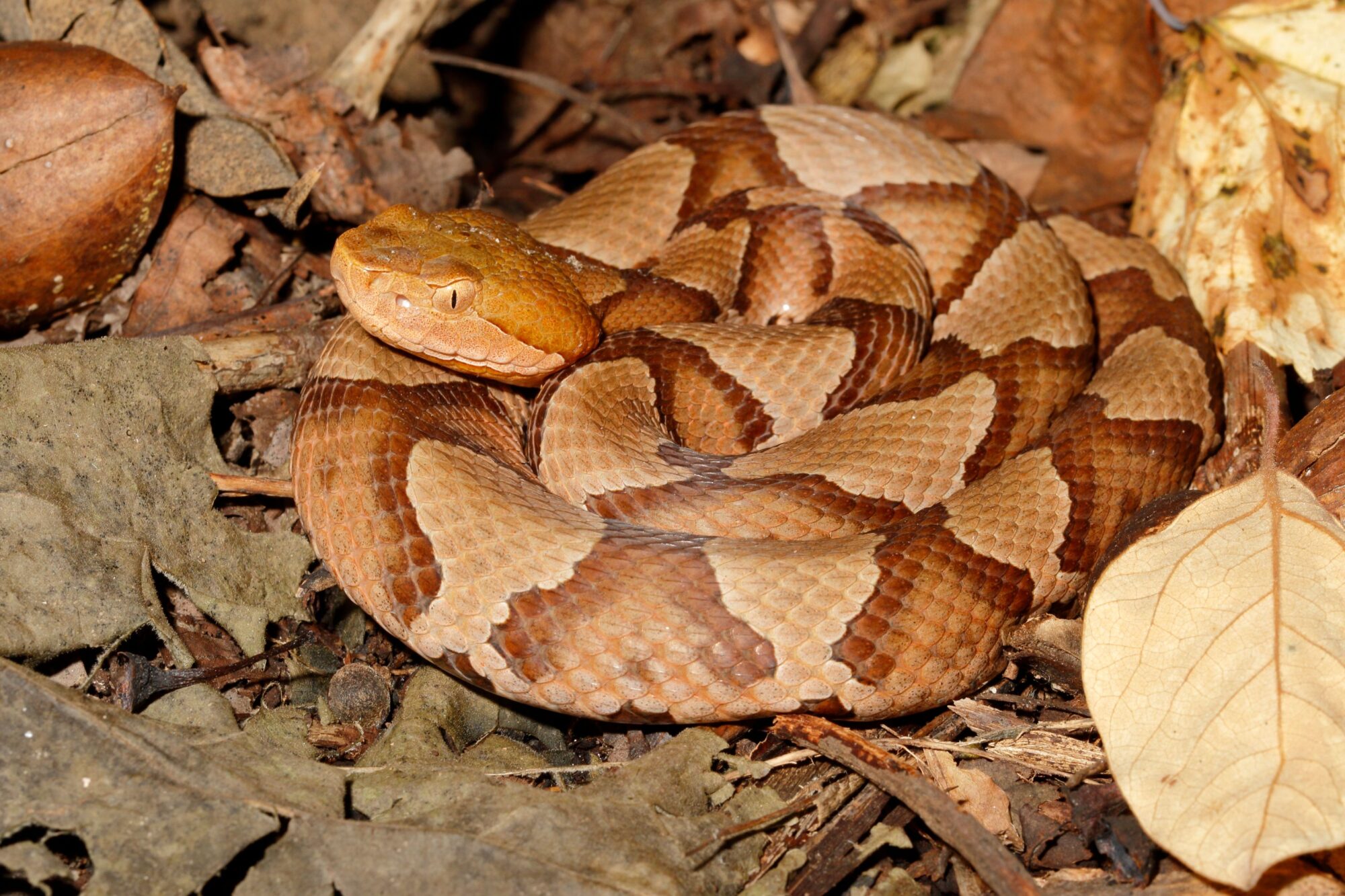The Role of Antivenom in Treating Snake Bites in Pets

Tennessee may not be the snake capital of the world, but we have our fair share of venomous nope-ropes including Cottonmouths, Copperheads, and Timber Rattlers. The Urban Pet hears from our share of concerned pet parents with questions about snake bites in pets and snake antivenom for pets. So what do you need to know?
Snake Bites in Pets
Snakes don’t want to be bothered, and most snake bites in pets happen when a curious animal is sticking its nose where it doesn’t belong. Most of the time bites occur on the nose or paws as an instigating pet is causing trouble.
Many snakes are not venomous at all, and those that are venomous don’t always secrete poison with their bite. When a pet is envenomated, though, things can turn serious quickly.
Injected venom damages the blood vessels in the affected area and disrupts blood clotting. This can lead to uncontrolled bleeding and a life-threatening drop in blood pressure.
Snake bites in dogs and cats may not be witnessed, but you should seek treatment if it’s possible your pet has been bitten and you notice:
- Sudden weakness or collapse
- Trembling or shaking
- Muscle twitching
- Diarrhea/and or vomiting
- Weakness
- Drooling
- Pupil dilation
- Sudden paralysis
Snake Antivenom for Pets
When snake bites in dogs or cats occur, quick veterinary attention is vital. If you can snap a picture of the offending animal, it can be helpful, but do not attempt to catch or kill it.
Call us right away, rinse the wound, and head over quickly while doing your best to keep your pet calm and the wound below heart level.
Treatment for snake envenomation is mostly symptomatic. Depending on the severity and type of snake bite, pain control and blood pressure stabilization is often central to treatment.
Antivenin administration may also be part of treatment depending on the type of snake. Antivenin is a concentrated source of antibodies to the snake venom that is derived from the blood of exposed horses. It is only effective within 4 hours of the bite, and is specific to the type of snake. If you think your pet has been bitten, it is very important to get them to a veterinarian close by. Snake bites are a true pet emergency.
We hope that you and your pet never encounter a snake, but if you do we hope that his knowledge is helpful. In most cases you can avoid snake bites altogether by limiting the rodent populations surrounding you, staying out of tall grass and brush where snakes like to hide, and not allowing your pet to harass wildlife.
